The Rice Purity Test is a renowned assessment tool designed to gauge levels of innocence and life experiences. Originating from Rice University in the 1930s, this test has transcended its academic roots to become a cultural phenomenon embraced by individuals seeking self reflection and introspection. Let’s uncover the intricacies of the Rice Purity Test and the insights it offers into our past and present selves.
Rice Purity Test
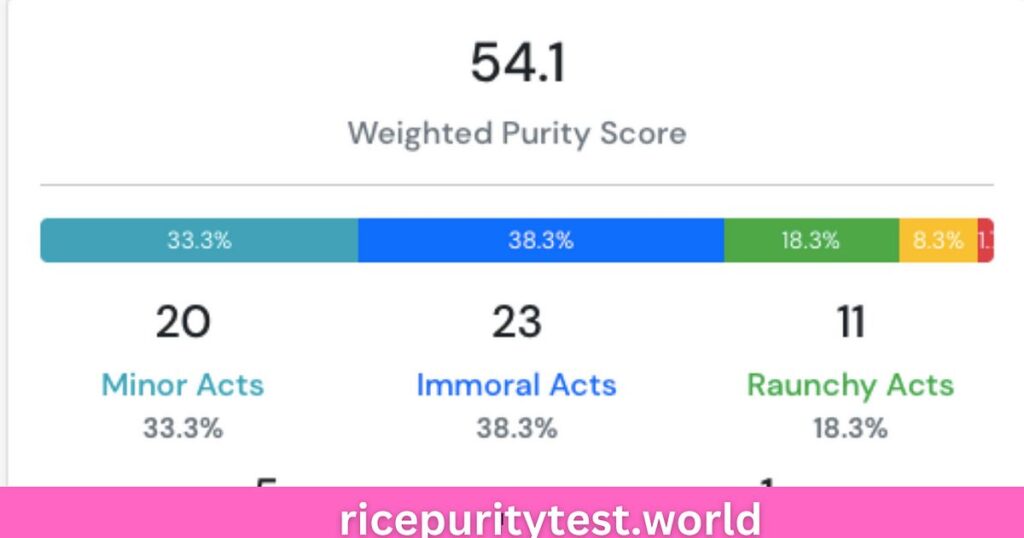
The Rice Purity Test is a fun quiz that asks you questions about your experiences and behaviors. It helps you see how innocent or pure you are based on your answers. Originating from Rice University it has become really popular among college students and young adults.
You answer “yes” and “no” to questions about things you may have done. There are different versions of the test, some with more questions than others. It is a lighthearted way to reflect on your past and maybe learn something new about yourself.
History of the Rice Purity Test
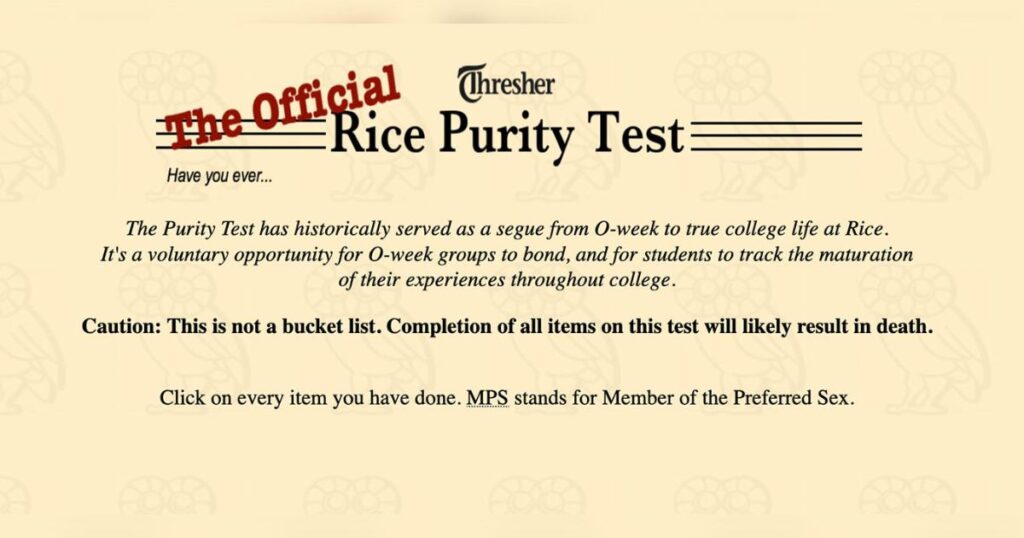
The Rice Purity Test originated in the 1930s at Rice University. Initially designed for incoming freshmen, it has since gained popularity beyond the campus and is now embraced by college students and young adults globally. It has evolved into a cultural phenomenon and shaping discussions around innocence and life experiences.
Read More Blog: http://Review of Shubham Water Park in Nashik 2024 ticket, timing, attractions, food
Purpose of the Test
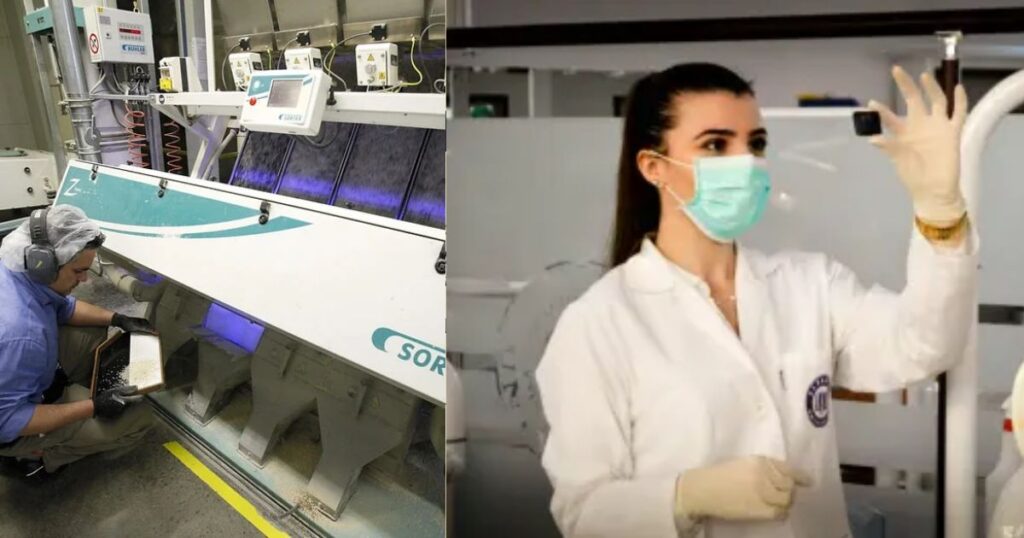
The primary purpose of the Rice Purity Test is to provide individuals with insight into their past behaviors and experiences. By answering a series of yes or no questions honestly, participants can gauge their level of innocence or purity. It serves as a tool for self reflection. Which allows individuals to contemplate their values, decisions and life journey.
How the Test Works?
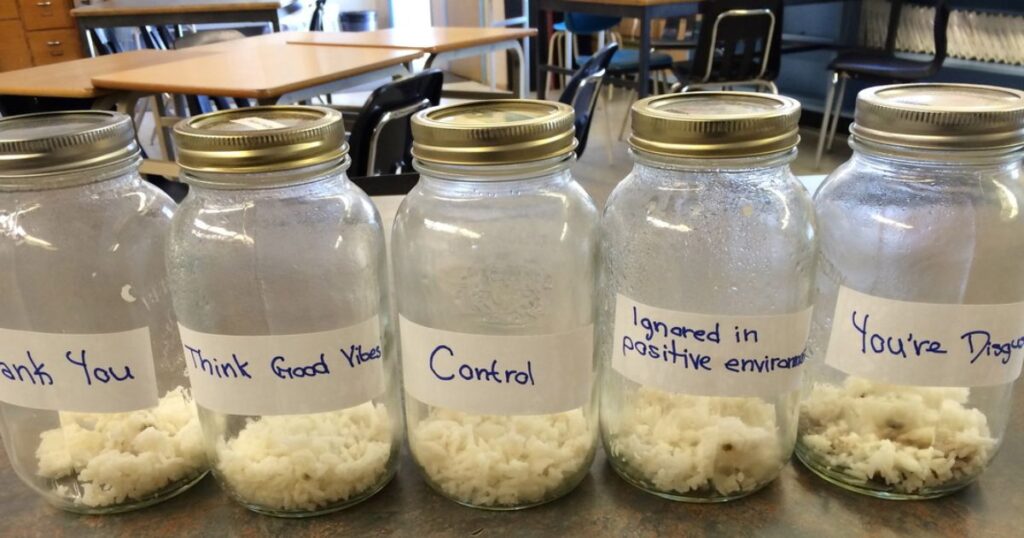
The Rice Purity Test operates through a series of questions that participants answer with either “yes” or “no.” These questions cover a wide range of activities and behaviors.. Which allows individuals to assess their experiences in various aspects of life. Participants’ responses provide a basis for determining their purity score, offering a glimpse into their past adventures and choices.
Popular Variations
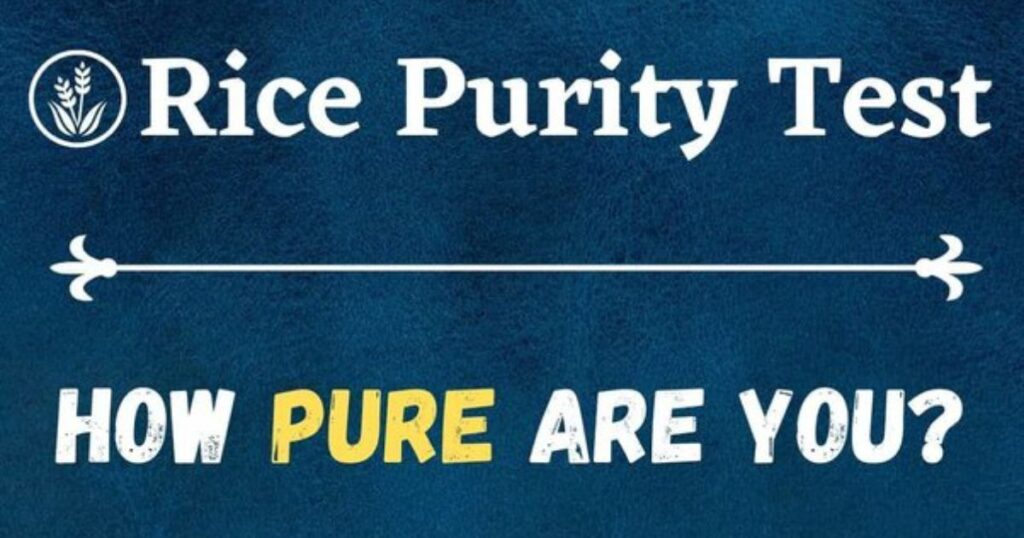
As the Rice Purity Test gained popularity, numerous variations emerged to cater to different demographics and preferences. These adaptations may feature modified questions, scoring systems and themes tailored to specific groups or communities. Whether it is a version tailored for college students, LGBTQ+ individuals, or other demographics, each variation retains the essence of self reflection and introspection.
The Impact of the Test

While the Rice Purity Test can be a lighthearted activity for some, it can also have deeper psychological effects on others. For some individuals, the results of the test may prompt self-reflection and introspection. Which lead to personal growth and a better understanding of oneself. However, for others, it may evoke feelings of judgment or inadequacy, highlighting the complex emotional impact of the test.
Controversies Surrounding the Test
Despite its widespread popularity, the Rice Purity Test has not been without its fair share of controversies. Critics argue that the test perpetuates unrealistic standards of purity and may inadvertently shame individuals for their past experiences or behaviors. Concerns regarding privacy, consent and mental health have sparked debates over the ethical implications of the test’s proliferation.
Benefits of Taking the Test
Many proponents argue that taking the Rice Purity Test can offer positive benefits. By encouraging self reflection and introspection, the test provides individuals with a valuable opportunity to gain insight into their own lives and values. It can help individuals better understand their past experiences and behaviors, leading to personal growth and informed decision making in the future.
Read More Blog: Download & Install The Indibet App For Android And iOS
Risks and Limitations
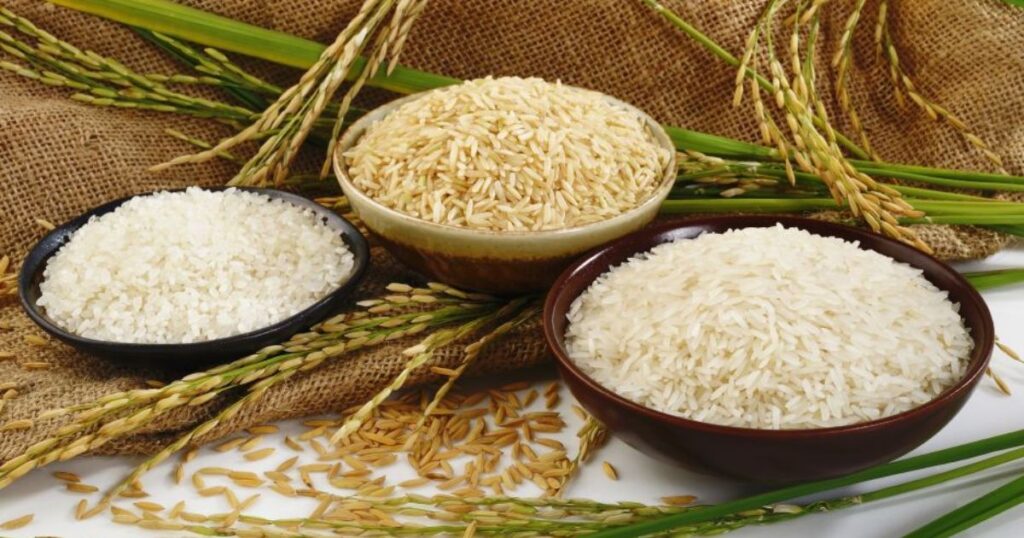
It is important to recognize that the Rice Purity Test also has its limitations and potential risks. The results of the test may not always accurately reflect an individual’s character or moral standing. There is a risk of misinterpretation or misunderstanding, as the test may not capture the full context of a person’s experiences. Some individuals may find the test emotionally challenging or triggering, highlighting the need for sensitivity and consideration when engaging with it.
How to Access the Test?
Accessing the Rice Purity Test is simple. You can find it on various platforms and websites online. Just search for it using your preferred search engine. Once you find a website hosting the test, click on the link to access it. Some platforms may require you to create an account or provide basic information before taking the test.
You can use virtual private networks (VPNs) to access the test from different locations. You can try alternative websites that may not be subject to the same restrictions. With these methods, you can unlock the Rice Purity Test and embark on your journey of self reflection.
Unblocking the Rice Purity Test
If you are facing restrictions or blocks on accessing the Rice Purity Test, there are solutions. One method is using virtual private networks (VPNs).These tools help bypass restrictions by masking your IP address and allowing you to access the test from different locations.
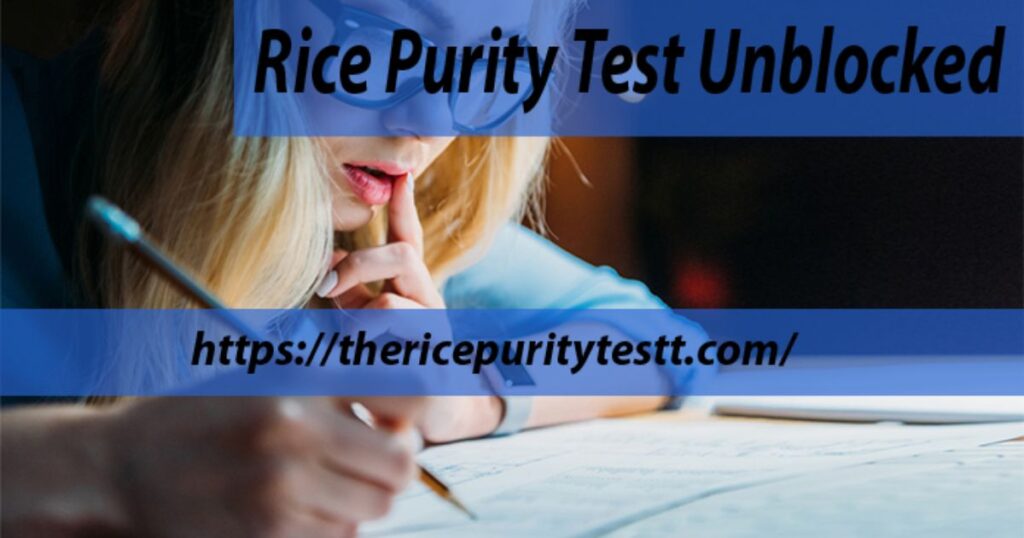
Alternatively, you can explore alternative websites that host the test and may not be subject to the same restrictions. With these approaches, you can unlock the test and engage in self-reflection.
Legal and Ethical Considerations
Before taking the Rice Purity Test, it’s important to consider legal and ethical implications. Ensure that your participation complies with relevant laws and regulations regarding online activities.
Prioritize your privacy and confidentiality while taking the test. Respect the terms of service of the platforms hosting the test and avoid sharing personal information unnecessarily. By navigating the test with mindfulness and awareness, you can engage in self reflection responsibly.
Frequently Asked Questions
What is a 0 rice purity score?
A 0 rice purity score indicates the highest level of life experiences and behaviors, suggesting little to no innocence or purity.
What is the lowest legal rice purity score?
The lowest legal rice purity score is typically considered to be 0.
Is 74 a good rice purity score?
A rice purity score of 74 is considered relatively high and indicates a moderate level of innocence.
Is it better to have a high or low purity test?
A high purity score reflects innocence, while a low score suggests more life experience.
Final Thought
The Rice Purity Test offers a simple yet intriguing way to reflect on one’s past experiences and behaviors.Whether taken for amusement and serious introspection, it prompts individuals to contemplate their values and decisions.Despite controversies and limitations, the test remains a popular tool for self assessment and personal growth in today’s digital age.











